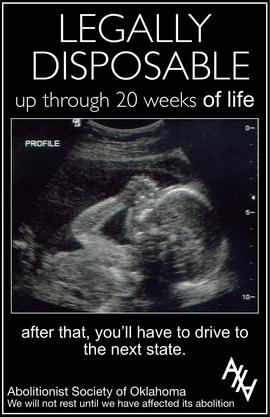Some will concede that every abortion kills an innocent human being. They will also concede that society has a right to outlaw choices that harm innocent human beings. But even after conceding those points, some still do not favor more stringent abortion laws because they think that they don’t really work – there would still be too many abortions. Historical data, morality, and basic legal theory prove this line of thinking to be false.
That harmful acts against the innocent will take place regardless of the law is a poor argument for having no law.
There are laws against burglary, rape, and armed robbery, yet every one of these crimes continues to happen in our society. That these things still happen should not convince us to make them legal. Laws should discourage bad things from happening, not conform to them simply because they happen.
The law can guide and educate people to choose better alternatives.
In her 1998 study of abortion laws and attitudes around the world, Rita J. Simon said: [1]
Abortions are permitted on request in forty-one nations. Tunisia is the only country in Africa to do so and across the Atlantic, a rather strange trio, Canada, the United States, and Cuba do so. In Asia and Europe, almost all of the communist and former communist bloc countries do so along with the Scandinavian countries and Austria, the Netherlands, and Greece. Public attitudes toward abortion were found to be positively and significantly correlated with abortion statutes. Those countries that had the most restrictive statutes vis-à-vis abortion reported the lowest approval ratings for abortion and those countries that permitted abortion on demand reported the highest approval ratings for abortion.
 This study shows that most people do not seriously contemplate abortion as an ethical issue, but simply buy into the beliefs about abortion implied by the existing laws of their country.
This study shows that most people do not seriously contemplate abortion as an ethical issue, but simply buy into the beliefs about abortion implied by the existing laws of their country.
It is true that hearts and minds—not just laws—need to change in relation to abortion. Yet, we often underestimate the power of law to mold thought as well as action.
When slavery was abolished, people gradually began to think differently. The civil rights movement brought about farther changes in law, and further changes in people’s thinking.
The law is a moral guide, a tutor that helps shape the conscience of society.
Even when law doesn’t change attitudes right away, it does affect the actions of many. Martin Luther King Jr., said: [2]
Morality cannot be legislated, but behavior can be regulated. Judicial decrees may not change the heart, but they can restrain the heartless.
Laws concerning abortion have significantly influenced whether women choose to have abortions.
There were abortions in this country before abortion was legal, but the number skyrocketed once it was legalized. There are now fifteen times more abortions annually in this country than there were the year prior to Roe v. Wade. [3]
The laws that once restrained abortion now encourage it.
A change in abortion laws, from restrictive to permissive, appears – from all data and in every country – to bring forward a whole class of women who would otherwise not have wanted an abortion or felt the need for one. Women can be conditioned (and are in many places) to want and feel the need for abortions.
Evidence from those countries where abortion-on-request has been long available (Russia, Japan, Hungary, for instance) shows that the subjectively felt stress that leads women to seek an abortion is socially influenced. [4]
In one survey of women who had abortions, 72 percent said they would definitely not have sought an abortion if doing so were illegal. [5]
Though making abortion illegal again would not stop all abortions, it would encourage the larger number of women to pursue available alternatives.
Some will concede that every abortion kills an innocent human being. They will also concede that society has a right to outlaw choices that harm innocent human beings. But even after conceding those points, some still do not favor more stringent abortion laws because they think that they don’t really work – there would still be too many abortions. Historical data, common morality, and basic legal theory prove this line of thinking to be false.
References:
- Rita J. Simon, Abortion: Statutes, Policies, and Public Attitudes the World Over (London: Praeger Publishers, 1998), 143-4.
- Martin Luther King Jr., Strength to love (New York: William Collins and World Publishing, 196?), 33.
- Bernard Nathanson, Aborting America (New York: Doubleday, 1979), 40-1.
- Daniel Callahan, “Abortion: Thinking and Experiencing,” Christianity and Crisis, 8 January 1973,296.
- David C. Reardon, Aborted Women: Silent No More (Westchester, 111.: Crossway Books, 1987), 333
